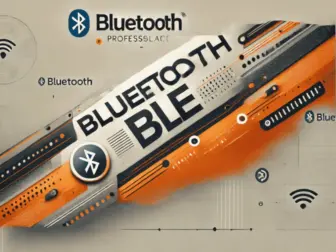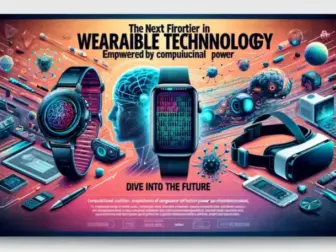Tag - Wearable Devices
Blog, IoT Protocols and Interoperability , November 6, 2024 , beacon iot, ble broadcast mode, ble gateway, ble iot, ble iot solutions, bluetooth beacon, bluetooth ble beacon, Broadcast Mode, iot, iot ble, MESH Networking, mesh networking iot, smart Home, Technical Guide, Wearable Devices, Wireless Communication
Exploring the Revolution of Wearable Devices
Wearable devices have become an integral part of our daily lives, revolutionizing the way we interact with technology. From smartwatches and fitness trackers to VR headsets and smart clothing, these devices have opened up a world of possibilities for consumers. With advancements in technology, wearable devices are becoming more sophisticated, offering a wide range of features and functionalities.
One of the major benefits of wearable devices is their ability to track and monitor various aspects of our health and fitness. Fitness trackers, for example, can monitor our heart rate, track our steps, and even provide personalized workout recommendations. This data can help us stay motivated and make informed decisions about our health and fitness goals. Wearable devices can also help us improve our posture, track our sleep patterns, and even monitor our stress levels.
In addition to health and fitness tracking, wearable devices are also changing the way we communicate and access information. Smartwatches, for example, allow us to receive notifications, make phone calls, send messages, and even pay for purchases right from our wrists. This level of convenience and connectivity has made smartwatches a popular choice for consumers looking to stay connected on the go.
Wearable devices are also making waves in the world of entertainment and gaming. Virtual reality (VR) headsets, for example, can transport us to immersive worlds and provide a truly immersive gaming experience. AR glasses, on the other hand, overlay digital information onto the real world, opening up new possibilities for education, training, and entertainment.
As wearable technology continues to evolve, we can expect to see even more innovative applications in various industries. In the healthcare sector, wearable devices are being used to monitor patients remotely, provide personalized care, and even detect early signs of disease. In the workplace, wearable technology can improve productivity, safety, and efficiency by providing workers with real-time information and feedback.
Despite the many benefits of wearable devices, there are also concerns about privacy and data security. As these devices collect and store sensitive personal data, it is crucial for manufacturers to prioritize data protection and security measures. Consumers should also be aware of the risks associated with wearable devices, such as data breaches and unauthorized access to their personal information.
Overall, wearable devices have the potential to revolutionize the way we live, work, and play. With their ability to track our health, improve our communication, and enhance our entertainment experiences, wearable devices are shaping the future of technology. As more companies invest in wearable technology and develop new applications, we can expect to see even more innovations in the coming years.


